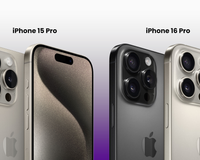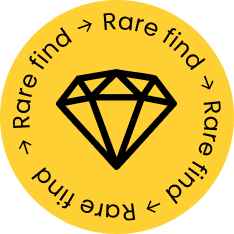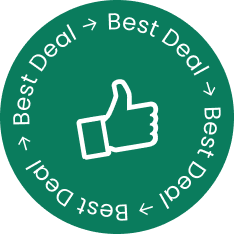Fighting climate change takes many forms. Painting a funny-yet-provocative slogan against meat consumption on your body and parading across London, recycling your old ginger ale bottles, buying responsibly sourced food… the list goes on. But have you ever thought about joining a circular economy?
You might’ve overheard someone talking about it at your local, seen it in an environmental zine, or be completely new to the idea… either way, it’s got serious clout when it comes to fighting climate change. It’s a concept that applies to multiple industries of manufacturing, from fashion to tech, which makes design and consumption circular. In simpler terms: it’s all about making and buying less, and reusing more of what’s already in circulation. At reboxed, that’s what we’re all about. It’s in our mantra: reduce, reuse, repeat. But less of that right now.
Here’s why circular economies are important, and how you can get involved.
Why is a circular economy important for sustainability?
Products. We love them. And as our population grows (the UN says we’ll go from 7.7 billion people today to 9.7 billion by 2050) we’re continually convinced by big corporations that we need more ‘stuff’. A constant stream of new, a slew of advertising battering you into a next-generation kettle, a groundbreaking toaster, or even a state-of-the-art dog brush. In 2019 alone, the UK racked up a scarily impressive £394 billion in retail sales. This, ladies and gentlemen, is thanks in part to the linear economy.
As opposed to the circular economy, the linear economy – our current system – is characterised by a ‘make, use, dispose’ approach, encouraging us to buy, buy, buy… then throw it all away to buy (basically) the same thing again. It’s a costly system. And not just for our wallets, but for our planet, too.
A UN report shows that global annual waste generation is expected to jump to 3.4 billion tonnes over the next 30 years, up from 2.01 billion tonnes in 2016. In that year, an estimated 1.6 billion tonnes of carbon-dioxide-equivalent were generated from the treatment and disposal of waste in 2016 – representing about 5 percent of global emissions. The most common of it all, and something that we at reboxed are out to change, is ‘e-waste’.
Tech is our achilles heel; we threw 50m tons of it away in 2019 alone. While the current system advocates producing and consuming (and throwing away) cheaply-made goods, a circular number could radically improve our impact on the environment. Think about it, less landfill and carbon emissions, more services and systems designed to be used again… and again… and again. This really gets us going at reboxed HQ; we’re committed to fighting the linear economy head-on, which you can read more about here <link to our mission>.

What industries would benefit most from a circular economy?
The ultimate goal of a circular economy is to cut waste. Minimising unnecessary material use, designing life-long items, and buying refurbished tech, or anything else for that matter, means supply chains that maximise life and value from planet earth’s precious resources.
Think about a forest, waste doesn’t exist in nature, because ecosystems reuse everything that grows in a never-ending cycle of efficiency and purpose. We need to get to that point in business. But first we need to look at which industries need help.
Out with fast fashion; in with green business and circular economies
Over the last 15 years, the World Economic Forum found that the fashion industry has doubled production, while the time clothing is worn before being thrown away has fallen by around 40%. Worse still, of the clothes thrown away, 73% will be burned or buried in landfill. Less than 1% of what is recycled will be used to make new clothing. And it’s not just bad for the environment, the industry is missing out on $560 billion in value from clothing being worn less and barely recycled.
Clearly things need to change, and that requires a fundamental redesign. Shifting away from a linear economy, and moving towards a circular situation, where brands increase how often clothes are worn, clothes made from safe and renewable materials, and old clothes used to make new ones.
Depop for example, a global fashion marketplace for buying and selling second-hand clothes, have grown to have 13 million users in 147 countries. While Online reseller Thredup predicts the total resale market to reach $41 billion in 2022. According to Forbes, used-merchandise stores on the high street are among the fastest-growing sectors in retail, up 7.6% in the first half of 2018 following an 11.6% gain in 2017. In short: if you’re thinking about buying a nice new frock, try second-hand if you can. That said, the circular economy doesn’t stop there.
Buying refurbished tech: the answer to e-waste
Fashion isn’t public enemy number one for waste. Our digital delusions are causing all sorts of problems for the planet, too. Today’s tech economy is built on fast turnover. The latest and greatest gadgets bumping our old bits and bobs into the bedroom draws. Within that, mobile phones seem to be one of the biggest culprits. Network providers hook us into long contracts with snazzy new devices, while we stuff our old phones away or worse still, chuck them in the bin.
Like the fashion industry, tech needs a way out of its linear economy. The answer lies with refurbished devices. At reboxed, our focus is mobile phones, creating a circular economy with refurbished devices. In a nutshell: a refurbished device is one that was made and then sent back to the manufacturer. It could have been by a store, a reseller, or a customer for any number of reasons, from technical defects to scratches. Refurbished phones are basically damaged or broken phones that have been repaired and sold for cheaper.
Join our circle for reused tech
Our mission is simple: rehome 100 million new mobile phones by 2030. To reach our goal we need to make buying and selling refurbished phones fast, easy and worth people’s while – so that’s what we’ve done.
All our phones are restored with official parts, each device covered by a 12-month warranty. We don’t sell refurbished phones for any less than premium quality. That’s why we invented TechCheck. It’s our all-seeing, 90-point diagnostics app spanning battery health, software, screen and more, guaranteeing you a refurbished phone as close to new as humanly possible.

reboxed: join the circular economy today
As our planet enters a crucial period in the fight against climate change, we’re determined to create a new normal, a loop whereby you and many others like you can buy and sell phones within a community for a fair price. A space where e-waste is drastically reduced… and we all sleep a little bit better knowing we’ve saved a little bit of cash on a new blower.
Once you buy from reboxed, you’ll join our circle. It’s our way of pushing the circular economy, and it’s based on the three r’s: rehome, rebox, repeat. So whenever you want to sell or trade up, we’ll buy the phone we sold you back at the market’s best price. Guaranteed. Every time. Without doubt.
Buying reboxed saves one phone from the scrapheap. And when you’re done with it, reboxing it, selling it back to us and upgrading to another reboxed phone saves two phones in one go.


![The Best iPhones for battery life ranked [2025]](http://reboxed.co/cdn/shop/articles/IPHONE-BATTERY_e2de6230-b1d2-4348-ac33-e47d1e267bdd_100x80_crop_center@2x.jpg?v=1738489925)






